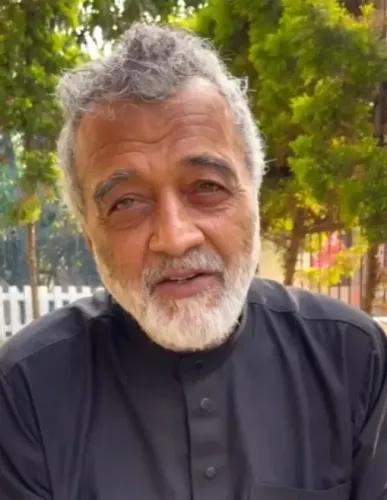Is Yemen Facing Greater Involvement in Regional Crises?

Synopsis
Key Takeaways
- Urgent need for peace negotiations.
- Risks of military escalation highlighted by UN envoy.
- Freedom of navigation in the Red Sea must be preserved.
- Call for release of arbitrarily detained individuals.
- Stakes for Yemen's future are exceedingly high.
United Nations, July 10 (NationPress) UN Special Envoy for Yemen Hans Grundberg expressed serious concerns on Wednesday regarding the potential for Yemen to be further entangled in regional conflicts linked to Israel.
The recent ceasefire between Iran and Israel is a positive sign for the region; however, as negotiations for a Gaza ceasefire progress, the Houthis in Yemen have intensified missile strikes against Israel over the past few weeks. This has escalated tensions in the Red Sea, where commercial ships were attacked earlier this week, resulting in civilian casualties, as reported by Grundberg during a monthly briefing to the Security Council, according to Xinhua news agency.
In retaliation, Israeli airstrikes targeted Sanaa and the ports of Hodeidah, Ras Issa, and Salif, as well as a power station, he noted.
The recent Houthi assaults on commercial vessels in the Red Sea mark the first such attacks in over seven months.
"Keeping the freedom of navigation in the Red Sea intact is crucial, and civilian infrastructure must never be a target in conflicts. Most importantly, Yemen must not be pulled into deeper regional crises that could further destabilize its already precarious situation," emphasized Grundberg. "The stakes for Yemen are exceedingly high; its future hinges on our collective commitment to protect it from additional suffering and to restore the hope and dignity its people rightfully deserve."
Despite the front lines in Yemen largely holding, the overall situation remains unstable and unpredictable, according to the envoy.
"I acknowledge that there is an appetite for military escalation among some factions on both sides of the conflict. However, pursuing a military solution poses a severe risk of exacerbating Yemen's suffering," he cautioned. "Even though negotiations are challenging, they represent the best opportunity for sustainably addressing the complexities of the conflict."
Grundberg underscored the urgent necessity to advance the peace process.
The prolonged nature of the conflict complicates matters further, with the risk of deepening divisions. It is vital for both sides to refrain from unilateral actions that could harm all Yemenis. Both factions must demonstrate genuine willingness to pursue peaceful resolutions and create conditions conducive to lasting stability, he stated.
He urged for initiatives to de-escalate tensions along the front lines and collaborate with the parties to establish parameters for a nationwide ceasefire. He also advocated for a clear path for talks between the factions.
Grundberg assured that he would continue collaborating with regional and international stakeholders to secure broader security guarantees, including safeguarding freedom of navigation in the Red Sea.
The people of Yemen must trust any agreements made, and the regional and international communities also need reassurance that their concerns are addressed, he mentioned. "This is crucial for establishing a robust support framework for a negotiated resolution."
Additionally, Grundberg reiterated his demand for the immediate and unconditional release of all individuals arbitrarily detained by the Houthis, including those from the United Nations, national and international NGOs, civil society groups, and diplomatic missions.









